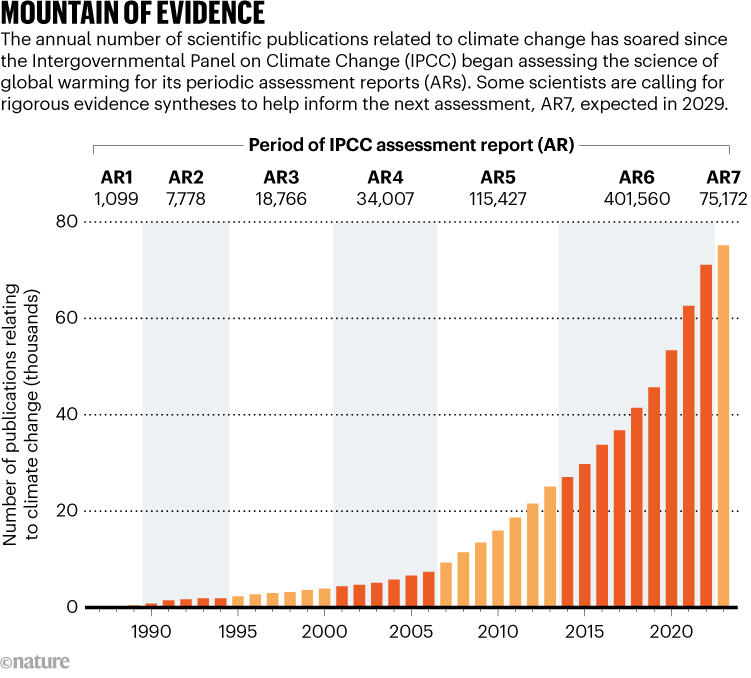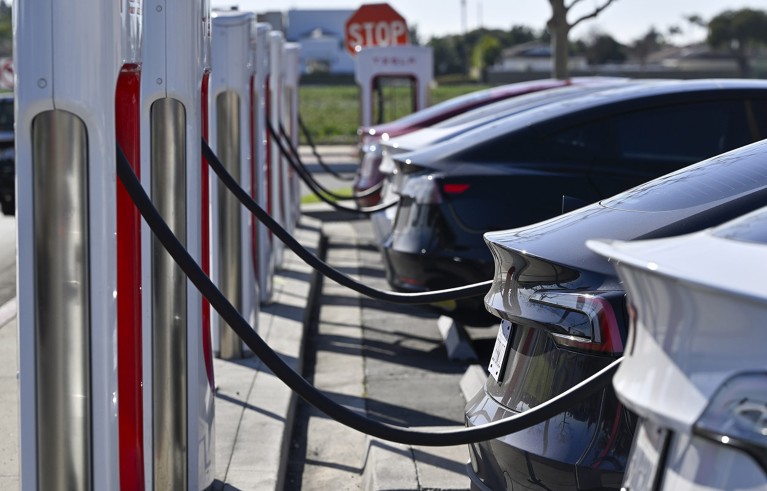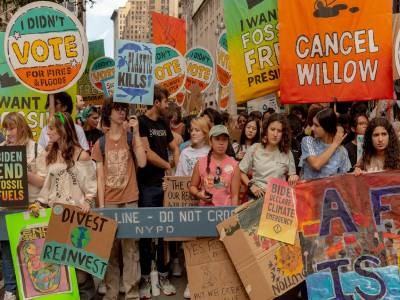What’s the best way to tackle climate change? An ‘evidence bank’ could help scientists find answers

Researchers are developing a bold plan to tackle one of the most urgent challenges in climate science: working out the most effective ways to tackle climate change. If it comes to pass, researchers and artificial intelligence (AI) would build a bank of evidence syntheses — reviews of a body of science — to reveal how well policies work to cut emissions or help societies adapt to global warming.
“This ‘what works?’ question is now the central question in climate policy,” says Jan Minx, a climate researcher at the Mercator Research Institute on Global Commons and Climate Change in Berlin, who is leading the effort.
Climate policy models need to get real about people — here’s how
Countries worldwide have introduced thousands of policies to tackle climate change over the past three decades — from carbon taxes to the promotion of electric vehicles. But it’s unclear which ones work best. The evidence bank would fill that gap. It could help governments to tackle climate change and feed into the next scientific assessment of the Intergovernmental Panel on Climate Change (IPCC), which is getting under way and scheduled to be published by 2029. A meeting in Berlin next week — the What Works Climate Solutions Summit — will be the first to bring together specialists in climate, policy and evidence synthesis to discuss the idea.
“I really think scientific policy advice could be largely dysfunctional,” if scientists don’t do this, says Minx.
Jim Skea, who chairs the IPCC and is based at the International Institute for Environment and Development in London, is enthusiastic about the summit and evidence-bank idea. Governments are asking the IPCC to include more guidance on climate policy and actions in its next cycle, he says. “Getting an evidence-based approach to interventions”, he says, “is absolutely aligned with that.”
But some researchers have concerns. Navroz Dubash, a climate-policy researcher at the Sustainable Futures Collaborative in New Delhi, says that although the effort is important, it risks “missing some of the most important approaches to climate policymaking”.
How effective are climate protests at swaying policy — and what could make a difference?
Evidence explosion
Minx was an author of the IPCC’s latest assessment, published in 2021–23. He says that the body, which is tasked with assessing the science on climate change, has been hugely successful, but “to make the IPCC work in the future, we need to operate differently”.
The organization has so far said little, says Minx, on how well different policies work to address climate change, and under what conditions. These include carbon taxes, carbon pricing and policies that promote energy efficiency and cleaner transport. The IPCC’s reports have discussed such policies and a growing number of studies assess their effectiveness. But what’s missing is a systematic attempt to synthesize all the research and compare approaches. “The main point is, for most of the available policies we do not have a clear view on the evidence — and a cacophony of opinions,” says Minx.
One barrier is the explosive growth of climate science1 (see ‘Mountain of evidence’). In the period leading up to the IPCC’s first scientific assessment, in 1990, researchers published fewer than 1,100 climate change studies. For the sixth and latest assessment, the figure exceeded 400,000, according to an analysis by Minx’s team. Growth of the literature is “a major, major challenge”, Skea says. And rather than being academic publications, many studies that evaluate the impact of climate policies are hidden in ‘grey’ literature that is hard to unearth, such as government reports.

Source: J. Minx & M. Callaghan/Ref. 1
Minx’s solution is to take a leaf out of medicine’s book. Medical researchers have for decades searched for and combined studies in systematic reviews to show whether treatments help or harm. Minx wants climate scientists to adopt this approach to assess whether policies help or not. “We need to provide small bundles of knowledge that can be picked up by the IPCC,” he says.
Make electric vehicles lighter to maximize climate and safety benefits
Some such reviews already exist. A study published this month2 by Minx’s team reviewed research on the effectiveness of carbon pricing, which typically shifts the cost of carbon emissions on to polluting industries. These initiatives are used worldwide, but their effectiveness in reducing emissions is debated. The study shows that carbon-pricing schemes cut emissions by around 4–15%, but highlighted that many schemes had not been evaluated. Minx wants future reviews to assess other impacts of policies such as carbon pricing — for example, their cost-effectiveness and impact on jobs.
Health effects
Minx is drumming up support for the evidence bank from climate researchers and funders. He envisions that reviews would build up in the literature and in existing databases, such as the Campbell Collaboration, which collects evidence syntheses on policies in one place.
Alan Dangour, who leads the climate and health team at research funder Wellcome in London, says the effort “couldn’t be more important”. Dangour wants to build evidence on the impacts of climate change and climate policies on human health — a priority area for Wellcome. Right now, “we’re asking policymakers to deliver adaptation actions with no understanding of what impact they’re going to have on health. It’s crazy”, he says.

Policies that encourage the use of electric vehicles are among the thousands of approaches that governments worldwide have implemented to curb emissions.Credit: Jeff Gritchen/MediaNews Group/Orange County Register via Getty
Dangour and other researchers think that AI will accelerate the once-laborious process of synthesizing evidence. Many scientists already use machine-learning tools to screen and sort relevant studies. Wellcome has committed to spend £10 million (US$13 million) before October 2024 to support new approaches to evidence synthesis for climate and health, Dangour says. The dream, he says, is an open-access AI tool that automatically updates evidence syntheses as studies are published. “That’s the sort of thing I would love us to be able to deliver.”
Skea says that in previous IPCC discussions, greater use of systematic reviews has drawn a mixed reception. In systematic reviewing, scientists typically start by collecting hundreds of studies and then whittle them down to those that are most relevant and rigorous. But the IPCC is under pressure to bring in wider perspectives, including Indigenous people’s knowledge — information that is seldom documented in studies and risks being excluded from a systematic review. “We need to be a bit cautious about it,” Skea says.
Dubash says that focusing through evidence syntheses “on narrow and concrete climate policies may crowd out attention to broader policies that are harder to categorize but may be used more in developing countries”. For instance, policies such as fuel taxes or green-job creation might not be classified as climate policies but they still cut emissions indirectly; and many countries are embracing bespoke policy packages as they move to low-carbon economies. The challenge, he says, is often designing policies tailored to a country’s particular situation.
Minx agrees that it’s important to work with a broad definition of climate policies. He hopes that momentum behind the IPCC’s next assessment will motivate people to back the evidence bank. “This is urgent,” he says. “We cannot afford to take bad decisions.”
Source link







